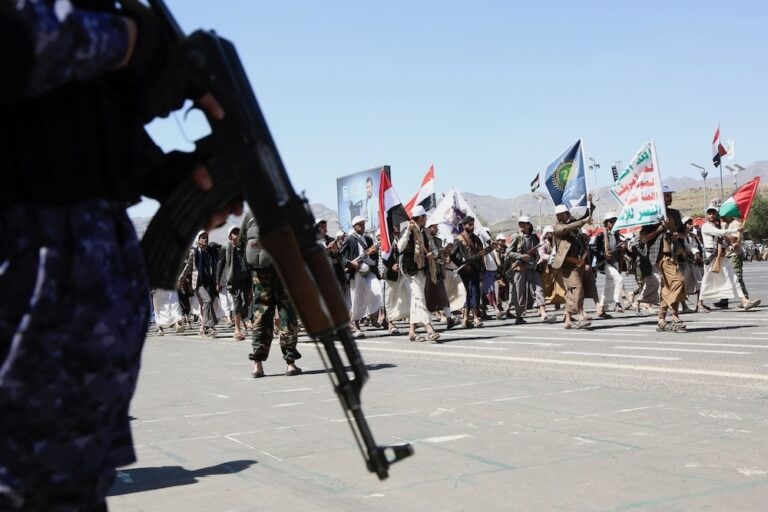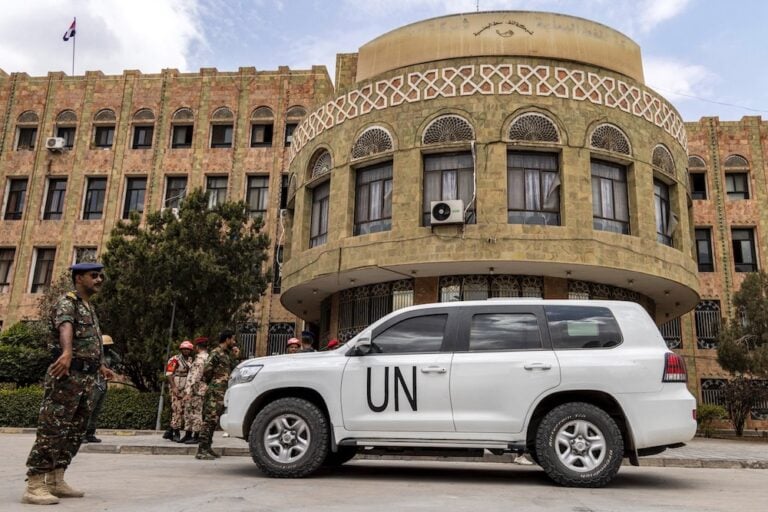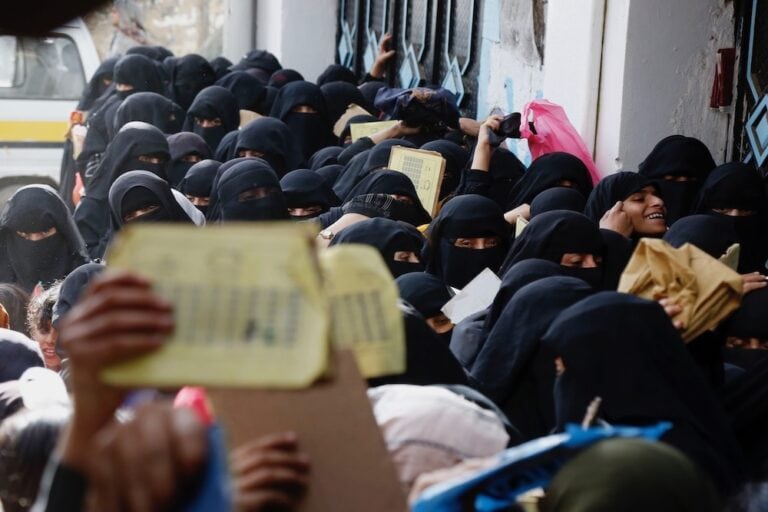Two weeks after the Yemeni government began a military offensive in the south against the Islamist armed group Al-Qaeda in the Arabian Peninsula, Yemeni authorities called staff at Al Jazeera Arabic and ordered that a reporter and cameraman who were covering the fighting leave the area.
By Belkis Wille, Yemen and Kuwait Researcher, Middle East and North Africa Division at Human Rights Watch
Two weeks after the Yemeni government began a military offensive in the south against the Islamist armed group Al-Qaeda in the Arabian Peninsula, Yemeni authorities called staff at Al Jazeera Arabic and ordered that a reporter and cameraman who were covering the fighting leave the area.
According to the Al Jazeera bureau chief, both he and a reporter were called last week by the director general of foreign media in the Ministry of Information, Shawqi Shaher. The reporter, Hamdi al-Bukari, said that Shaher gave neither him nor the bureau chief any reason for ordering them out of Shabwa, a province where fighting is taking place, before threatening to revoke al-Bukari’s journalist visa if he disobeyed. Colleagues from Al Jazeera English told me that they had planned to travel to the area but changed their minds after the threat.
Human Rights Watch contacted the Ministry of Information to confirm the phone call but received no response.
Nine months ago, Human Rights Watch released a report documenting a surge of attacks on journalists in Yemen – including by government forces – since President Abdu Rabu Mansour Hadi took office in 2012. The government has taken no measures to address these attacks. The latest steps against Al Jazeera could be a harbinger of further crackdowns on free media coverage in Yemen.
The fighting in the south, the most prominent subject on everyone’s lips in the capital, Sanaa, at the moment, is clearly newsworthy. However current coverage in Yemen is limited to the media reprinting statements issued by the government announcing victory after victory.
Al-Bukari told me that he thinks he and his colleague were ordered to leave because they were showing the humanitarian impact of the military assault on civilians in the area, including what he alleges was indiscriminate government shelling. He said their footage disproved government claims that it had achieved complete control of certain Al-Qaeda in the Arabian Peninsula strongholds, including the town of Azzan.
The government shouldn’t be trying to keep this information from its people.


